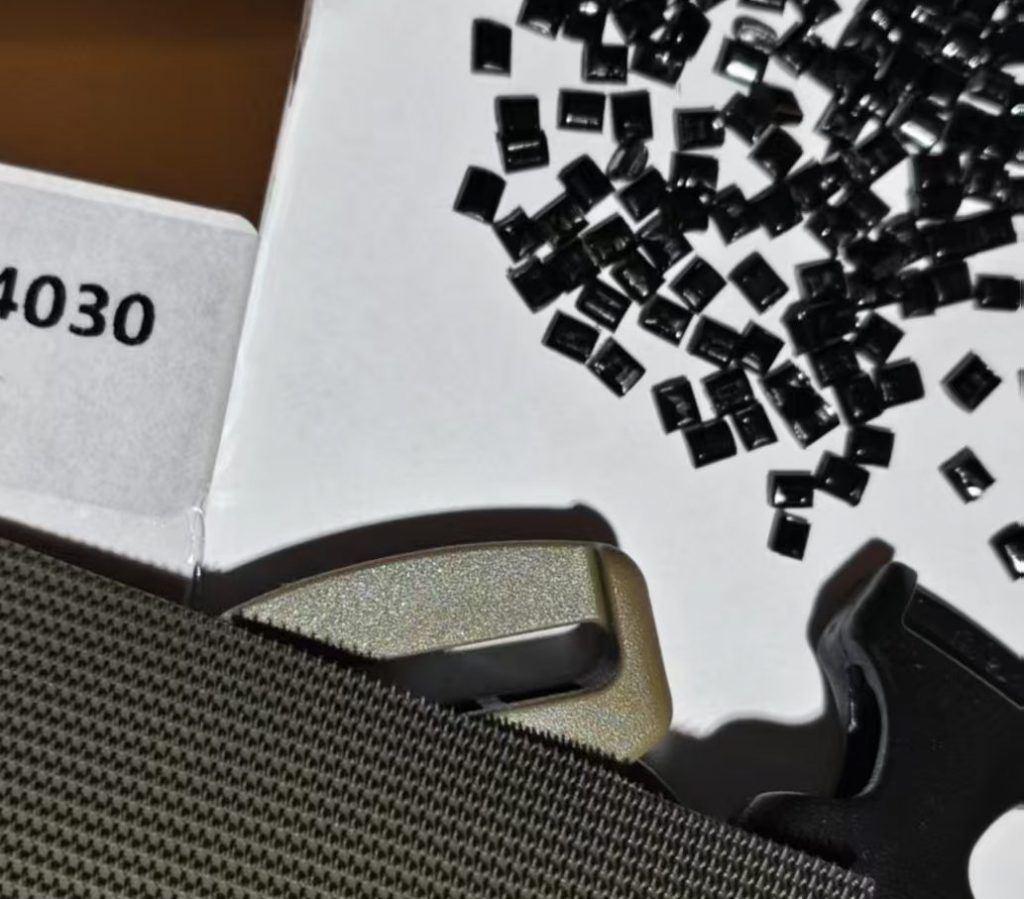FLIERMOUSE’s IR-Reflective plastic (IR-Reflective Polyamide6.6 and polyoxymethylene)technology represents an advanced material solution for military applications, designed to significantly reduce the infrared detectability of soldiers’ equipment through material science and engineering. Below is a detailed analysis and summary of the technology:

1. Material Basis & Applications
Application Scenarios: Military uniforms, backpacks, snap fasteners, and wearable equipment. The technology enhances soldier concealment against enemy IR detection devices (e.g., sniper rifle scopes, infrared binoculars).
2. Technical Principles & Strategies
IR Radiation Modulation:
- Molecular Structure Modification: Adjust polymer chain structures or introduce functional groups to alter thermal emissivity (e.g., controlling crystallinity or adding IR-absorbing/reflecting groups).
- Optical Property Engineering: Incorporate nanofillers (e.g., metal oxides, carbon-based materials) or conductive polymers to absorb/reflect IR waves, reducing surface emissivity.
- IR Intensity Reduction: Minimize heat accumulation or enhance heat dissipation via material design (e.g., integrating thermally conductive fillers to distribute heat uniformly).
- Propagation Pathway Control: Use multilayer composites or micro-surface engineering (e.g., microporous textures) to scatter/absorb IR radiation, limiting direct emission.
3. Technical Advantages
- Intrinsic Modification vs. Coatings: Unlike traditional external coatings, FLIERMOUSE’s molecular-level design enables inherent IR stealth, improving durability and environmental resistance (e.g., abrasion/weathering tolerance).
- Material Versatility: Compatible with PA66, PA6, POM, and other plastics, broadening applicability across diverse military components.
- Performance Balance: Maintains mechanical properties (strength, wear resistance) while achieving IR stealth, avoiding performance degradation from excessive additives.
4. Challenges & Considerations
- Environmental Adaptability: Ensure stability under extreme temperatures, humidity, and diurnal thermal cycling.
- Multi-Spectral Stealth: Future designs may require compatibility with visible light, radar, and other detection bands.
- Cost & Scalability: Balance nanofiller costs or complex processing with military budget constraints.
5. Validation & Expansion
- Testing: Laboratory spectral analysis (e.g., FTIR emissivity measurements) and field simulations to verify stealth efficacy across distances and angles.
- Extended Applications: Potential use in military vehicles, UAV shells, or civilian domains (e.g., wildlife monitoring). Further research needed for cross-scenario adaptability.
6. Competitive Edge & Innovation
- Differentiation: FLIERMOUSE’s coating-free, lightweight solution may dominate in individual soldier gear.
- Integration Potential: Future synergy with active thermal regulation (e.g., thermoelectric cooling) for dynamic IR signal adaptation in complex environments.
Conclusion
FLIERMOUSE’s IR-stealth plastics( IR-Reflective Polyamide6.6 and IR-Reflective polyoxymethylene)exemplify innovation in military camouflage, leveraging molecular engineering to intrinsically modulate IR signatures. This technology promises to enhance soldier survivability, contingent on balancing stealth performance with practical material utility and rigorous battlefield validation. As advancements continue, such IR-Reflective polymeric materials may become integral to multi-spectral stealth systems.
Home
Services
Services
发表回复